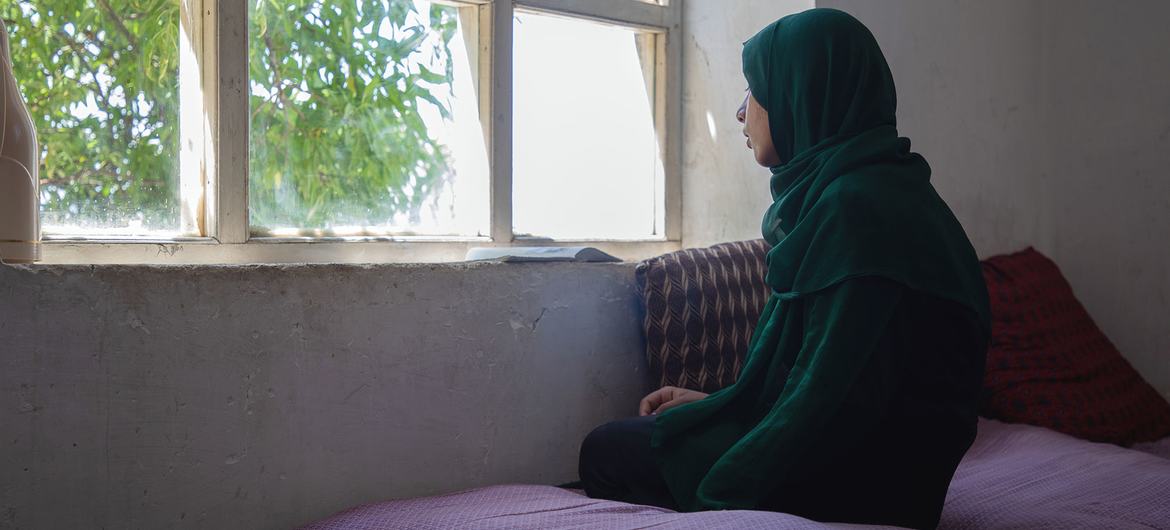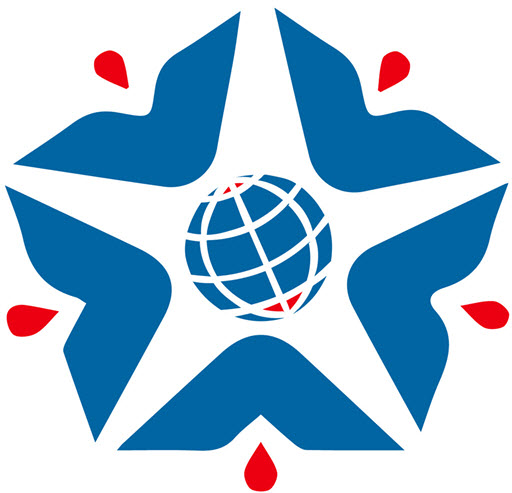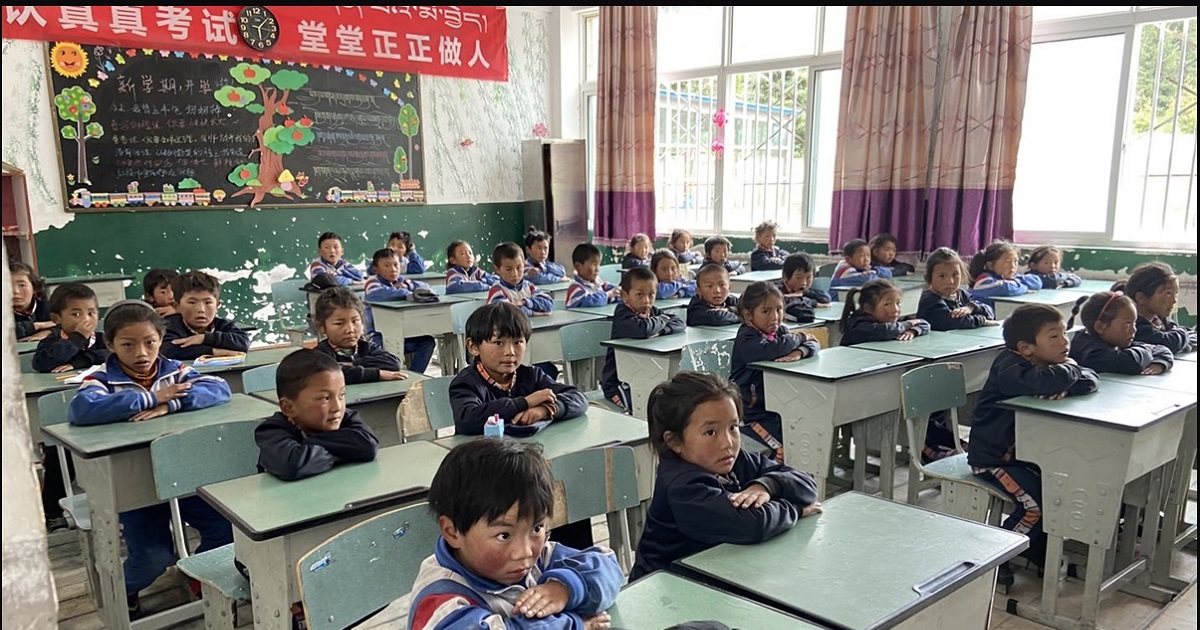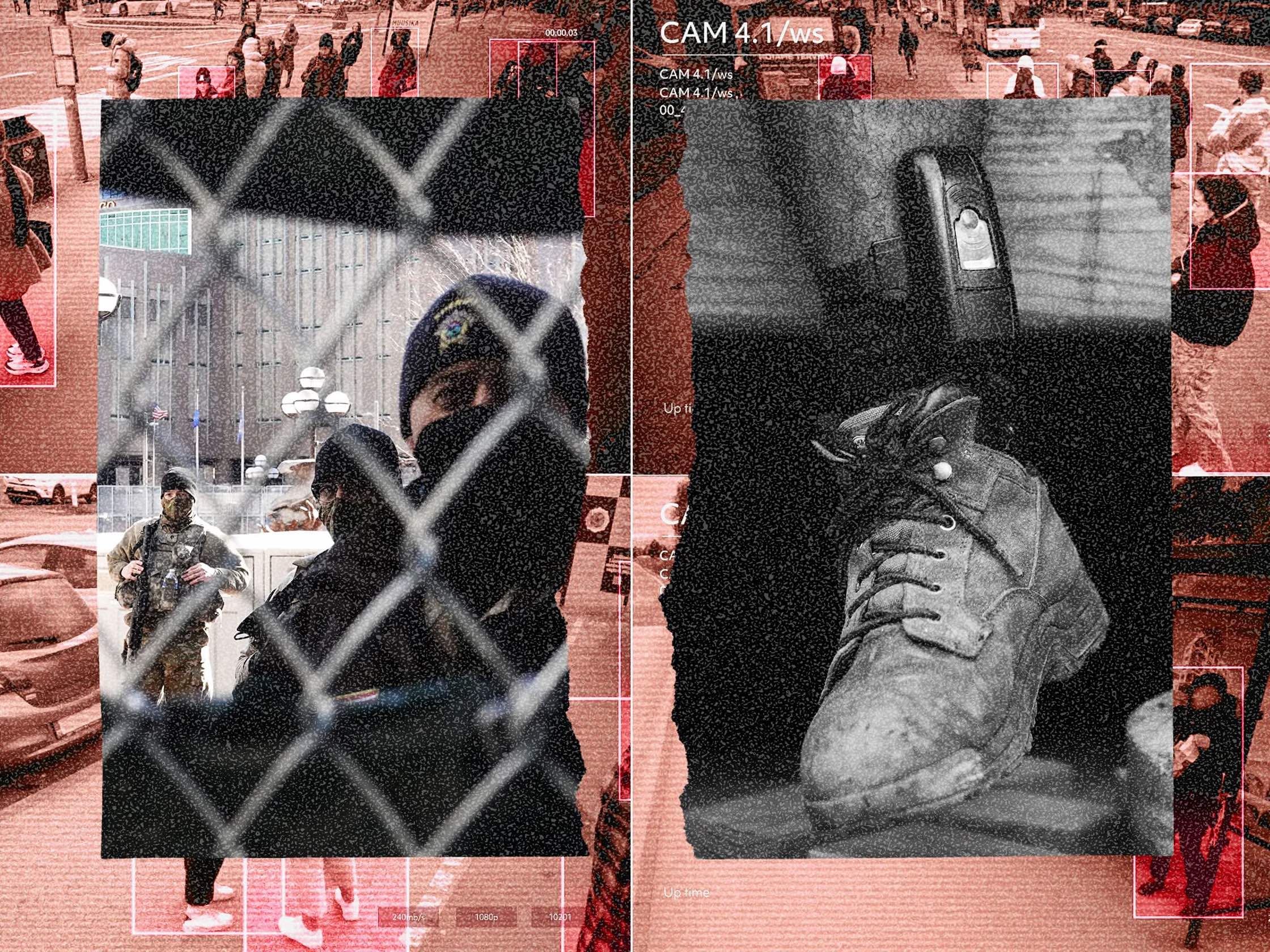
Carrington Calder, Associate Member, Immigration & Human Rights Law Review
I. Introduction
Forty-six countries recognize some form of Sharia law.[1] One of these countries is Afghanistan, which has caused international backlash for their present state of women’s rights.[2] In August 2024, the Afghan Ministry of Justice created the new Propagation of Virtue and Prevention of Vice law which has been met with discontent from international organizations such as the United Nations (U.N.).[3] The Taliban’s regime has affected women’s religious freedoms and violated provisions of international human rights law.[4] Part II of this essay will detail how the Taliban have developed their version of Islamic law from a historical context. Part III will examine Afghanistan’s failure to comply with international human rights law, including the Convention on the Elimination of All Forms of Discrimination Against Women (CEDAW) and the Articles of the Universal Declaration of Human Rights. Finally, Part IV will look to the future for the possibility of policy change in Afghanistan and advise for continued vigilance by international human rights bodies.
II. Background
A. Explanation of Sharia
Unlike Western legal systems, Islamic law is not separate from religion.[5] Islamic law is based on Sharia and derived from Muslim sacred text, the Quran, and practices of the Prophet Muhammed which are known as Hadith.[6] These records collectively form the Sunna and provide a way of life for Muslims to follow.[7] Sharia governs all forms of conduct in both public and private settings.[8] As a result, religion intensely governs daily life in countries that follow Sharia.[9] To describe Sharia as just a legal system would be reductive, as in many ways, it is an entire path of life.[10] In a classical Sharia country, to create law outside of Sharia would be to put man in the place of God, as “[o]nly God, not men, could make laws and set punishments.”[11] In Afghanistan, where extremist Islam is present, police and judges act as theologians and religious interpreters.[12] Due to the absence of written and codified law, citizens may face punishment for offenses they were unaware of.[13] With a lack of consistency in interpretation, “[o]n any legal issue, there are ten different opinions.”[14]
B. The Taliban’s Rise to Governance
In 1919, Afghanistan granted women suffrage, and they experienced a long era of freedoms on par with democratic nations.[15] After the Soviet invasion in 1979, women’s freedoms were interrupted.[16] The conflict gave rise to extremist insurgency groups that were often supported by United States aid, such as the Taliban and Al-Qaeda.[17] The Taliban is a militant group born out of students of an ultra-conservative path of Islam, with the direct translation of Taliban meaning students.[18] After the United States withdrawal from Afghanistan in 2021, the Taliban quickly filled the power vacuum and implemented their interpretation of Islamic law.[19]
Taliban leader Haibatullah Akhundzada presently rules Afghanistan.[20] Under his regime, the most drastic changes have been to women’s rights.[21] The new Propagation of Virtue and Prevention of Vice law requires women to cover their entire body, prohibits them from speaking in public or looking at men who are non-relatives, and discourages them from leaving their homes unless absolutely necessary, among other restrictions.[22] Violations of these rules can result in brutal punishments, such as stoning or public flogging.[23] Girls as young as sixteen have been beaten for perceived violations, such as immodest clothing.[24] Among these restrictions are specific limitations on how women may participate in the Muslim faith, such as bans on loud prayer.[25] When justifying such punishments, Akhundzada stated that he represents Allah, and those who dispute his practices represent Satan.[26]
III. Discussion
Under the Taliban’s regime, there have been a plethora of human rights violations affecting various groups.[27] However, no group has been marginalized as severely as women.[28] Among the human rights denied of Afghan women is the right to religious freedom.[29] The Taliban tolerate no dissention among religious beliefs, depriving Afghan women of their autonomy and freedom to practice their faith according to their own preference.[30] These practices violate the Convention on the Elimination of all Forms of Discrimination against Women (CEDAW) and Article 18 of the Universal Declaration of Human Rights (UDHR).[31] Without freedom of religion, women in Afghanistan will continue to be denied their agency and right to expression.
A. Apostasy: An Infringement to Afghan Women’s Freedom of Religion
The Taliban have strictly enforced a monotheistic state, with the crime of apostasy carrying severe penalties.[32] Apostacy is renouncing or not believing in religion.[33] Women charged with apostacy can be subjected to lashes or life imprisonment.[34] Non-Muslim faiths such as Christians are targeted under apostacy laws, creating additional difficulty for non-governmental organizations (NGOs) to administer aid.[35] In 2023, Taliban authorities arrested humanitarian workers under charges of “spreading Christianity.”[36] Insulated minorities such as Sikhs or Hindus are forced to adhere to Muslim dress codes and are the frequent targets of violence.[37] In 2020, Islamic State- Khorasan terrorists killed 25 Sikh worshipers in Kabul, the capital of Afghanistan.[38] The Taliban have also canceled traditional holidays such as Ashura and threatened violence against any who celebrate.[39] Ashura is a Muslim holiday but does not accord with the Taliban’s sect of Islam.[40]
Article 18 of the UDHR mandates the freedom to change religion or beliefs and the freedom to manifest “religion or belief in teaching, practice, worship and observance.”[41] In 1948, UDHR was created by the U.N.[42] The UDHR operates as a list of human freedoms for the international community.[43] Although it is not binding, the UDHR is intended to serve a guiding purpose for individual rights.[44] As Afghanistan is a U.N. member state, it should strive to uplift the UDHR’s freedoms.[45] By violating Article 18, Afghanistan severely limits the ability of NGOs to operate in the country and creates a hostile culture to any minority religion.[46] The challenges forced upon NGOs disproportionally affect women, who are more likely to be in need of humanitarian assistance.[47]
B. Taliban’s Sharia Discriminates Against Women on the Basis of Sex
The Taliban not only persecutes non-Muslim faiths, but also targets Muslim women with exclusive restrictions as well.[48] The Propagation of Virtue and Prevention of Vice law requires women to “hide [their] voice.”[49] This law has been applied to the practice of Islam for women by the Vice and Virtue Minister Khalid Hanafi, who states that it is prohibited for a “woman to recite Quranic verses or perform recitations in front of another grown woman. Even chants of takbir (Allahu Akbar) are not permitted.”[50] Like other Taliban laws, violations can be met with brutal punishments.[51] Hanafi serves as the Taliban’s morality police and his brutality has earned him sanctions from the United States for his role in human rights abuses such as “killings, abductions, whippings, and beatings.”[52] The movement of women is intensely restricted, which includes the ability of women to attend mosque for religious ceremonies.[53] The Taliban has prevented women from attending religious services, asserting that it is illegal for women to pray outside of the home.[54] Religious sites such as the Mausoleum of Ali place restrictions on women as well, allowing them to attend only on certain days.[55]
As a result of the Taliban’s interpretation of Sharia, women have been targeted with extensive limitations on their ability to practice and administer their faith.[56] These restrictions meet CEDAW’s definition of discrimination as a “distinction, exclusion or restriction made on the basis of sex.”[57] CEDAW is an international bill of rights for women and Afghanistan is a signing member since 2003 without reservations.[58] This means that Afghanistan is legally bound to its provisions in its entirety.[59] Although the Taliban is not internationally recognized as the legitimate ruler of Afghanistan, other member countries can still challenge them for their breaches of the convention.[60]
The restrictions on religion must be examined in the context of the other restrictions the Taliban have forced upon women.[61] Without women having the right to education, movement, or organization, the Taliban’s interpretation of religion is unlikely to be challenged from within.[62] With repression silencing any other viewpoints, the Taliban have created a single view of the Muslim faith in Afghanistan.[63] Members to the CEDAW have called for the International Court of Justice (ICJ) to take action against Afghanistan.[64] The ICJ is an U.N. organ that arbitrates disputes between member states.[65] If the case proceeds against Afghanistan, they will be the first country summoned for discrimination against women.[66]
IV. Conclusion
For many of the women in Afghanistan, Islam is a core value of their lives, however, they are forced to adhere to policies that some argue are contrary to their faith.[67] Women who are denied the right to practice according to their beliefs are denied agency and freedom of expression. It is unlikely that the Taliban will alter their policy to adhere to international treaties in the near future. Regardless, there should be no complacency among human rights organizations with the present regime. NGOs and international organizations should continue to monitor the situation in Afghanistan and explore all possible avenues for accountability under CEDAW, including the ICJ.[68] These realities must be confronted to ensure that the plight of women in Afghanistan does not go unheard.
[1] Afghanistan: UN Warns of Growing Crisis Under Increasingly Authoritarian Taliban Rule, U.N. (Sept. 18, 2024), https://news.un.org/en/story/2024/09/1154491 [https://perma.cc/GC99-M3HY].
[2] Id.
[3] Annie Kelly, Meryl Streep: ‘A Squirrel Has More Rights Than a Girl in Afghanistan,’ The Guardian (Sept. 14, 2024, 9:36 AM EDT), https://www.theguardian.com/global-development/2024/sep/24/meryl-streep-a-squirrel-has-more-rights-than-a-girl-in-afghanistan-taliban-un [https://perma.cc/6R29-MJLE].
[4] Islamic Legal Systems, Judiciaries Worldwide, https://judiciariesworldwide.fjc.gov/islamic-legal-systems (last visited Oct. 21, 2024) [https://perma.cc/2QE9-L7F3] (Classical Sharia is more involved in how it dictates a way of life, compared to secular Sharia where the state does not formally incorporate it into its jurisprudence.)
[5] Paul Marshall, Introduction: The Rise of Extreme Shari’a, in Radical Islam’s Rules: The Worldwide Spread of Extreme Shari’a Law 1 (Paul Marshall ed., 2005).
[6] Different spellings of ‘Quran’ and ‘Sharia’ exist; however, these spellings will be used consistently throughout this paper.
[7] Kali Robinson, Understanding Sharia: The Intersection of Islam and the Law, Council on Foreign Relations (Dec. 17, 2021, 2:00 PM EST), https://www.cfr.org/backgrounder/understanding-sharia-intersection-islam-and-law [https://perma.cc/BE9M-XEPD]; The Sunnah and the Hadith, Rossing Ctr., https://rossingcenter.org/islams/the-sunnah-and-hadith/ (last visited Oct. 21, 2024) [https://perma.cc/W458-6MGW] (Muhammed is viewed as the prophet and is the central figure of the Muslim faith. “May God bless him and grant him peace” is often used when mentioning his name. This statement has been excluded from this paper, with all respect intended.)
Sadakat Kadri, Heaven on Earth: A Journey Through Shari’a Law from the Deserts of Ancient Arabia to the Streets of the Modern Muslim World 9 (2012).
[8] Noel James Coulson at al., Sharia, Brittanica (Sept. 27, 2024), https://www.britannica.com/topic/sharia [https://perma.cc/55BY-ZFBN].
[9] Id.; Marshall, supra note 4, at 12.
[10] Id. at 1.
[11] Id. at 12.
[12] Id.
[13] Id. at 13.
[14] Robinson, supra note 6.
[15] Madeline Fitzgerald & Brianna Navarre, A Timeline of Women’s Rights in Afghanistan, U.S. News (May 2, 2023),
https://www.usnews.com/news/best-countries/slideshows/womens-rights-in-afghanistan-a-timeline?slide=2 [https://perma.cc/NKX4-QVLH].
[16] Id.
[17] Nicholas Kotarski, Whose Monster? A Study in the Rise to Power of al Qaeda and the Taliban, State Univ. of N.Y. at Buffalo (2018), https://digitalcommons.buffalostate.edu/cgi/viewcontent.cgi?article=1050&context=history_theses. [https://perma.cc/HU6A-SCGW].
[18] Taliban: Political and Religious Faction, Afghanistan, Britannica (Oct. 21, 2024), https://www.britannica.com/topic/Taliban [https://perma.cc/5SQA-TQV5]; Who are the Taliban? BBC (Aug. 12, 2022), https://www.bbc.com/news/world-south-asia-11451718 [https://perma.cc/KBW5-72L4].
[19] Hannah Bogaert, History Repeating Itself: The Resurgence of the Taliban and the Abandonment of Afghan Women, Immigr. and Hum. Rts. L. Rev. Vol. 4: Iss. 1, Article 3 (2022), https://scholarship.law.uc.edu/cgi/viewcontent.cgi?article=1076&context=ihrlr [https://perma.cc/UF7N-YXRQ].
[20] Profile: New Taliban chief Mawlawi Hibatullah Akhundzada, BBC (May 26, 2016), https://www.bbc.com/news/world-asia-36377008 [https://perma.cc/XCB2-8JYD].
[21] Graeme Smith, Afghanistan Three Years after the Taliban Takeover, Int’l Crisis Grp. (Aug. 14, 2024), https://www.crisisgroup.org/asia/south-asia/afghanistan/afghanistan-three-years-after-taliban-takeover [https://perma.cc/KCF3-MPBN].
[22] Islamic Emirate of Afghanistan Ministry of Justice, The Propagation of Virtue and Prevention of Vice Law (2024), https://www.afghanistan-analysts.org/en/wp-content/uploads/sites/2/2024/08/Law-on-Virtue-and-Vice-Basic.pdf [https://perma.cc/9XTL-GLNX].
[23] Afghanistan: Rights Experts Alarmed Over Taliban Use of ‘Brutal’ Punishments, U.N. (May 11, 2023), https://news.un.org/en/story/2023/05/1136562 [https://perma.cc/GV3K-Y72W].
[24] Zuhal Ahad, Afghan Girls Detained and Lashed by Taliban for Violating Hijab Rules, The Guardian (Jan. 10, 2024, 1:30 AM EST), https://www.theguardian.com/global-development/2024/jan/10/afghanistan-girls-detained-beaten-taliban-hijab-rules [https://perma.cc/456J-AVH7].
[25] Afghan Women Cannot Pray Loudly or Recite in Front of Other Women, Says Taliban Minister, AP News (Oct. 30, 2024, 7:28AM EST), https://apnews.com/article/afghanistan-women-taliban-morality-laws-1b52f8effabc3058accd59dd07789829 [https://perma.cc/49NK-E4WC].
[26] Asma Afsaruddin, Allah, Britannica, https://www.britannica.com/topic/Allah (last visited Oct. 21, 2024) [https://perma.cc/U4JZ-UTK8] (Allah translates to God); Ruchi Kumar, Taliban Edict to Resume Stoning Women to Death Met with Horror, The Guardian (Mar. 28, 2024, 2:02 PM EDT), https://www.theguardian.com/global-development/2024/mar/28/taliban-edict-to-resume-stoning-women-to-death-met-with-horror [https://perma.cc/5YZW-N6CW].
[27] Afghanistan: Rights Experts Alarmed Over Taliban Use of ‘Brutal’ Punishments, U.N. (May 11, 2023), https://news.un.org/en/story/2023/05/1136562 [https://perma.cc/6TE4-YZ7H].
[28] Kelly, supra note 2.
[29] Islamic Emirate of Afghanistan Ministry of Justice, supra note 21.
[30] Id.
[31]Convention on the Elimination of All Forms of Discrimination Against Women, U.N. Treaty Series vol. 1249, p. 13, Dec. 18, 1979, https://www.ohchr.org/en/instruments-mechanisms/instruments/convention-elimination-all-forms-discrimination-against-women [https://perma.cc/RF9F-65UJ]; G.A. Res. 217 A, Article 18, United Nations, Dec. 10, 1948, https://www.un.org/en/about-us/universal-declaration-of-human-rights#:~:text=Everyone%20has%20the%20right%20to%20freedom%20of%20opinion%20and%20expression,media%20and%20regardless%20of%20frontiers [https://perma.cc/QE8X-MDX9].
[32] U.S. Dep’t of State, Rep. on Int’l Religious Freedom: Afg. (2022), https://www.state.gov/reports/2022-report-on-international-religious-freedom/afghanistan/ [https://perma.cc/GHT2-5B2B].
[33] Id.
[34] Id.
[35] Taliban Said To Suspect Detained NGO Workers Of Promoting Christianity, Radio Free Europe (Sept. 16, 2023), https://www.rferl.org/a/humanitarian-ngo-afghanistan-taliban-staff-detentions/32595529.html [https://perma.cc/N5UC-L9KJ].
[36] Id.
[37] Freshta Negah and Abubakar Siddique, ‘Forced to Dress Like a Muslim’: Taliban Imposes Restrictions On Afghanistan’s Sikh, Hindu Minorities, Free Radio Europe (Aug. 22, 2023), https://www.rferl.org/a/afghanistan-sikh-hindu-muslim-taliban-restrictions/32559175.html [https://perma.cc/TQ8T-SBRU].
[38] Id.
[39] U.S. Dep’t of State, supra note 32.
[40] Id.
[41] G.A. Res. 217 A, supra note 31.
[42] Id.
[43] Id.
[44] The United Nations in Afghanistan, U.N., https://afghanistan.un.org/en/about/about-the-un#:~:text=Afghanistan%20officially%20joined%20the%20United,its%20diverse%20and%20unique%20culture [https://perma.cc/X7M2-ZR7Z].
[45] Id.
[46] Negah & Siddique, supra note 39.
[47] Afghanistan, World Bank Group, https://genderdata.worldbank.org/en/economies/afghanistan [https://perma.cc/667Y-8SHM].
[48] Afghan Women Cannot Pray Loudly or Recite in Front of Other Women, Says Taliban Minister, AP News (Oct. 30, 2024, 7:28AM EST), https://apnews.com/article/afghanistan-women-taliban-morality-laws-1b52f8effabc3058accd59dd07789829 [https://perma.cc/49NK-E4WC].
[49] The Propagation of Virtue and Prevention of Vice Law, Islamic Emirate of Afghanistan, Ministry of Justice, Official Gazette, https://www.afghanistan-analysts.org/en/wp-content/uploads/sites/2/2024/08/Law-on-Virtue-and-Vice-Basic.pdf [https://perma.cc/NV45-WGU3].
[50] Afghan Women Cannot Pray Loudly or Recite in Front of Other Women, Says Taliban Minister, AP News (Oct. 30, 2024, 7:28AM EST), https://apnews.com/article/afghanistan-women-taliban-morality-laws-1b52f8effabc3058accd59dd07789829 [https://perma.cc/49NK-E4WC].
[51] Javid Ahmad, Taliban Leadership Tracker: Mawlawi Sheikh Mohammad Khalid al-Hanafi, Middle East Inst., https://talibantracker.mei.edu/english/taliban/leadership-tracker/Mawlawi-Sheikh-Mohammad-Khalid-al-Hanafi [https://perma.cc/F3CS-QZNU].
[52] Id.
[53] Taliban in Herat; Women Not Allowed to Participate in Friday Prayers and File a Complaint Against Their Husbands with the Court, Jade Abresham (June 22, 2022), https://jade-abresham.com/english/?p=5208 [https://perma.cc/S4Z4-WQF2].
[54] Id.
[55] Restrictions Imposed on Women for Visiting Blue Mosque in Balkh, Amu TV (Sept. 9, 2022), https://amu.tv/17105/ [https://perma.cc/V3E8-D59X].
[56] Id.
[57] Convention on the Elimination of All Forms of Discrimination Against Women, supra note 31.
[58] Id.
[59] Id.
[60] Afghanistan’s Taliban Face New International Pressure on Rights of Women and Girls, Open Society Justice Initiative (Sept. 25, 2024), https://www.justiceinitiative.org/newsroom/afghanistan-s-taliban-face-new-international-pressure-on-rights-of-women-and-girls [https://perma.cc/6SXA-5B6P].
[61] The Propagation of Virtue and Prevention of Vice Law, Islamic Emirate of Afghanistan, Ministry of Justice, Official Gazette, https://www.afghanistan-analysts.org/en/wp-content/uploads/sites/2/2024/08/Law-on-Virtue-and-Vice-Basic.pdf [https://perma.cc/NV45-WGU3].
[62] Id.
[63] Rosemarie Skaine, The Women of Afghanistan Under the Taliban 37 (2002).
[64] Ewelina Ochab, The Taliban To Be Taken Before The International Court Of Justice, Forbes (Sept. 26, 2024, 04:42AM EDT), https://www.forbes.com/sites/ewelinaochab/2024/09/26/the-taliban-to-be-taken-before-the-international-court-of-justice/ [https://perma.cc/Y65B-LTMF].
[65] Frequently Asked Questions, Int’l Ct. of Justice, https://www.icj-cij.org/frequently-asked-questions (last visited Nov. 4, 2024) [https://perma.cc/88RX-DLVF].
[66] Ochab, supra note 62.
[67] Skaine, supra note 61.
[68] Press Release, International Community Must Not Normalize Taliban Rule in Afghanistan, U.N. Press Release (Aug. 14, 2024), https://www.ohchr.org/en/press-releases/2024/08/international-community-must-not-normalise-taliban-rule-afghanistan [https://perma.cc/TCM8-8H7S].



